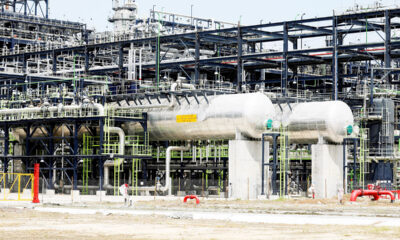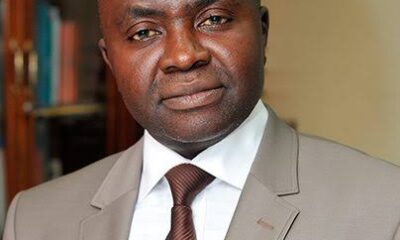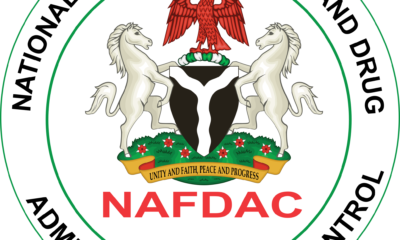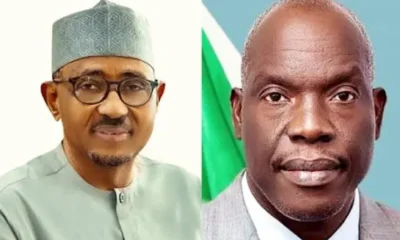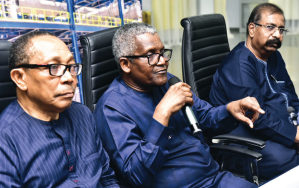Power
Discos revenue collection dips in June, rakes in N182.11b
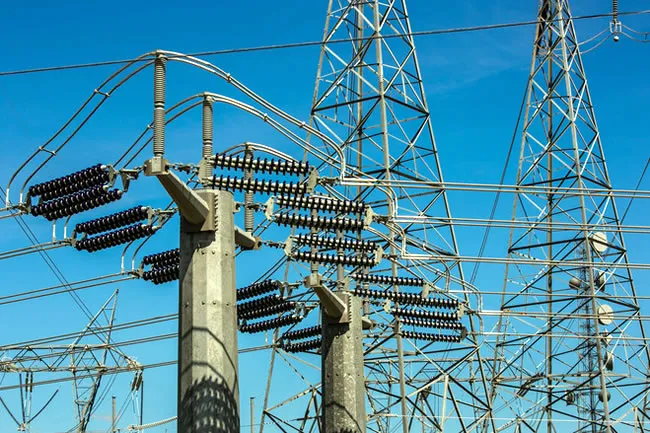
The financial strain on electricity distribution companies (DisCos) may not abate anytime soon. This is because collection of bills, a core source of their revenue, has continued to dip.
According to the latest report on Discos revenue collection released by the Nigerian Electricity Commission (NERC) for the month of June 2025, DisCos recorded a drop in their revenue collection for the month of June 2025, as their total intake dropped to N182.11 billion, representing a 4.93 percent intake from the N191.57 billion recorded in May.
The figures, contained in NERC’s Commercial Performance of Distribution Companies Factsheet for June 2025, revealed that while DisCos billed customers N237.85 billion for energy consumed, only 76.57 percent of the billed amount was actually collected. This marked a slight improvement compared to the 73.17 percent collection efficiency recorded in May.
Eko DisCo emerged the top performer, raking in N33.18 billion, followed closely by Ikeja Electric with N32.66 billion, and Abuja DisCo with N30.11 billion. On the contrary, Yola DisCo collected N2.96 billion, Kaduna Electric managed N3.62 billion, while Jos DisCo raked in N5.71 billion, to emerge as the lowest revenue performing utilities.
The declining revenue collections by Discos is not unconnected with the lingering challenges in the country’s power sector, including poor service delivery and the hydra-headed problems associated with consumer metering.
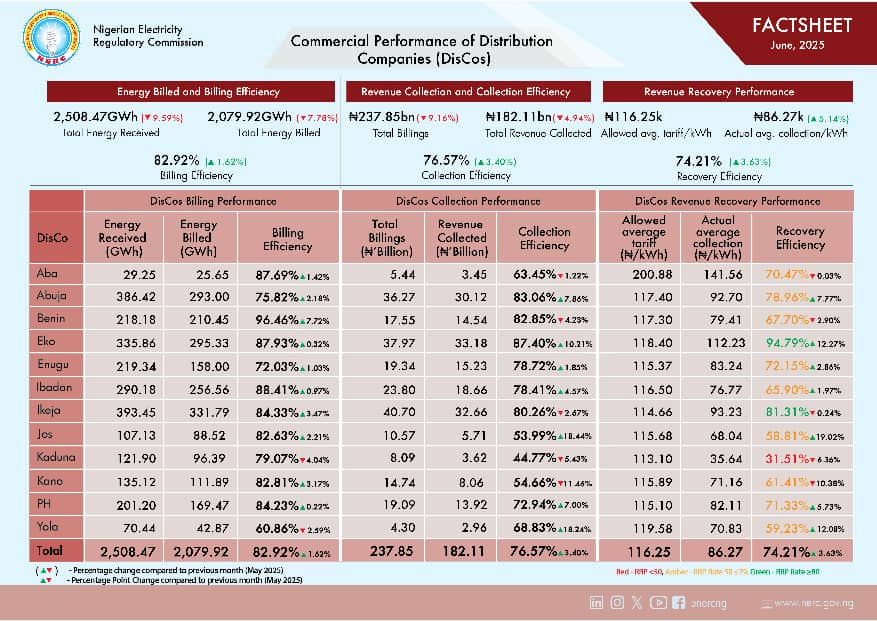
For instance, the Chief Executive, Centre for the Promotion of Private Enterprise (CPPE), Dr. Muda Yusuf, noted that the declining revenue collection by Discos poses a big risk to their operational health and sustainability. This malaise, he argued, may lead to illiquidity of the utilities.
“There are huge commercial losses arising from massive electricity theft and general indiscipline regarding payment for electricity consumed. Regrettably government agencies are some of the major culprits. Unpaid electricity bills by these agencies runs into several billions of naira.
“Then there is the issue of tariffs which the Discos have argued are not cost reflective. Social and political considerations have been impeding the introduction of cost reflective tariffs. All of these have combined to create an incredible sustainability challenge for the Discos and the entire power sector,” the CPPE boss said.
According to Yusuf, several factors are responsible for the unhealthy situation which the utilities have found themselves. One of these he noted to be that investments made were based on assumptions which have turned out to be unrealistic.
“The biggest risk to the health and sustainability of the DISCOS is illiquidity which is fast degenerating to insolvency. First the investments were based on assumptions which turned out to be unrealistic. Most of those assumptions have collapsed in the course of time.
“Besides, the risks of the business were not properly evaluated from the outset, some of which have now crystallised, creating major challenges for the companies. Political and macroeconomic risks were very significant.
“There was also the case of weak technical capacity and knowledge of the investors about the power sector. The knowledge and capacity gaps was a major challenge because many of the investors have very little knowledge about the power sector. It is not easy to manage an industry you do not understand,” he explained.
Yusuf noted that there were also concerns about the transparency of the privatisation process as the debt financing component of the acquisition was very high. “Many of the Discos were heavily leveraged because the debt financing component of their acquisition was high. Subsequently, with a huge debt service burden in a high interest rate environment, it became a nightmare for the companies,” he explained, adding that “it has become inevitable for the government to do some heavy lifting to pave the way for the emergence of a power sector that can support the economic and social objectives of the government.”
Similarly, the Chairman of the Electricity Consumers Association of Nigeria, James Chijoke, criticized the DisCos for failing to provide value to customers. He argued that the majority of electricity users are still unmetered, forcing them to pay for power they did not consume under the guise of estimated billing system.
“With over half of customers not metered in the sector, most are paying for services they did not receive. Estimated billing means customers continue to pay high rates for electricity whether there is supply or not. It is an unfair practice that must be urgently stamped out by the government,” Chijoke said.

Power
Ikeja Electric, LECAN trains 100 young electricians

As part of its continuous investment in human capital development, Ikeja Electric Plc (IE), in collaboration with the Licensed Electrical Contractors Association of Nigeria (LECAN), has concluded a one-day intensive skills acquisition and capacity-building programme with the theme: “Electrical Safety and Best Practices in the Electricity industry.”
Over 100 participants comprising field technicians and electrical professionals participated in the workshop which focused on practical and engaging sessions bordering on safety procedures, alternative power integration and electrical installation standards.
Speaking at the event, the State Chairman of LECAN, Bada Waheed, commended Ikeja Electric for its continued support of capacity development within the electricity industry.
“This initiative is a testament to what can be achieved when industry leaders and professional bodies collaborate for sustainable growth. Our young electricians represent the future of Nigeria’s energy value chain, and programmes like this ensure they are skilled, informed, and safety-conscious. We deeply appreciate this gesture from Ikeja Electric and hope to have future collaborations to impact our youth and make them more productive. Noteworthy is the fact that this programme aligns with our goal of nurturing local talents and bridging the gap between learning and practical application,” he said.
The Head of Corporate Communications, Ikeja Electric, Kingsley Okotie, highlighted the importance of corporate partnerships in driving community empowerment, beyond the provision of electricity.
“Over time we have discovered a lot of gaps in efficiency and knowledge acquisition especially by technicians, who are major stakeholders within our sector. This fueled our drive to strengthen their capacity in the area of safety, alignment in the integration of renewable energy as well as other industry innovations. We know that electricity is a powerful tool that demands responsibility and precision. Therefore, this training is reinforcing our zero-harm culture by empowering participants with the right knowledge to execute their work safely and efficiently.
The collaboration with LECAN reflects our vision to build safer communities through education and empowerment; closing knowledge gaps, reducing accidents within our area of coverage and preventing unnecessary loss of lives and property, thereby making the society a better place for all’’ he concluded.
One of the beneficiaries, Makinde Adeyinka, expressed gratitude for the opportunity, describing the experience as “eye-opening and impactful.”
“I have learned so much about safety standards, proper installations, and building a sustainable career as an electrician. I am thankful to Ikeja Electric and LECAN for investing in young electricians like me and look forward to more programmes like this,” he said.
The one-day training is part of Ikeja Electric’s ongoing youth empowerment and safety awareness initiatives, reinforcing its commitment to workplace safety, operational excellence, and continuous professional development.
Power
Electricity subsidy dips to N514.35b in Q2 2025
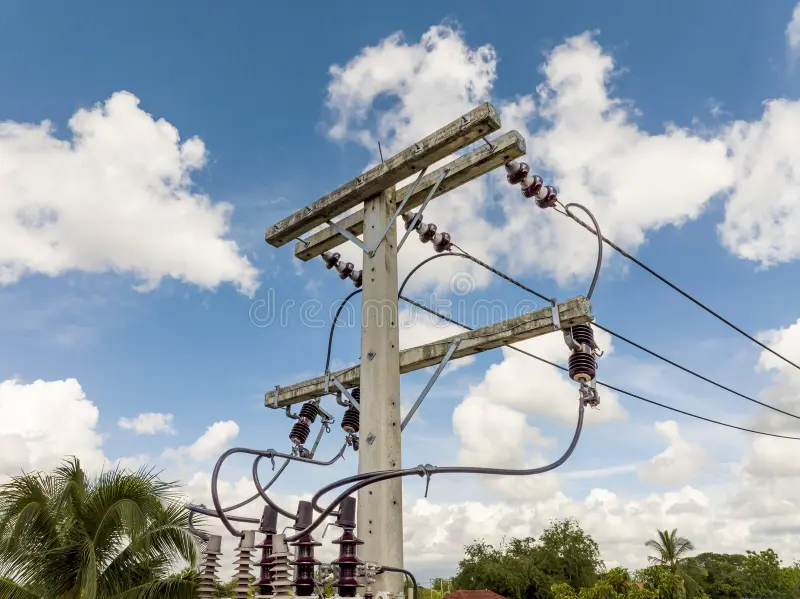
• DisCos collect ₦564.71 billion revenue; International customers pay $9.01m
The Nigerian Electricity Regulatory Commission (NERC) has said the cost of Federal Government electricity subsidy reduced to N514.35 billion in the second quarter of 2025 (Q2 2025) from the N536.40 paid in the Q1 2025. The decline was by 4.11 per cent, according to the commission’s Q3 Report.
The payment of subsidy, the report noted, was incurred due to lack of a cost-reflective tariff.
NERC said, “The total amount invoiced by the GenCos for energy delivered to each DisCo and the DRO- adjusted NBET invoice to the respective DisCos during 2025/Q2.
“It is important to note that due to the absence of cost-reflective tariffs across all DisCos, the Government incurred a subsidy obligation of ₦514.35 billion 21; this represents a ₦22.04 billion (-4.11 per cent) reduction in FGN subsidy compared to 2025/Q1 (₦536.40 billion).”
The report also noted that although the subsidy obligation of the government decreased in naira terms (-₦22.04 billion), it accounted for 59.60 per cent of the total GenCo invoice, which is a
0.44pp increase compared to 2025/Q1 when subsidy accounted for 59.16 per cent of the total GenCo invoice.
NERC said this is because the actual generation cost (₦/kWh) increased by 0.59 per cent, while the allowed end-user tariffs remained unchanged across the quarters.
According to the report, the total revenue collected by all DisCos in 2025/Q2 was ₦564.71 billion out of the ₦742.34 billion that was billed to customers.
This, said NERC, translates to a collection efficiency of 76.07 per cent.
In comparison, the report said, the total revenue collected by all DisCos in 2025/Q1 was ₦553.63 billion out of the ₦744.26 billion billed to customers, which translated to a 74.39 per cent collection efficiency.
This means that at an aggregate level, DisCos recorded a 1.68pp increase in collection efficiency between 2025/Q1 and 2025/Q2, according to the report.
NERC revealed that in 2025/Q2, three DisCos recorded collection efficiencies greater than 80 per cent with Eko (87.80 per cent) recording the highest collection efficiency.
Conversely, it said Jos DisCo recorded the lowest collection efficiency at 43.82 per cent .
It added that on there other hand, the remaining five DisCos recorded declines in collection efficiency, with Abuja (-3.93pp) and Jos (-3.37pp) DisCos having the most significant declines
across the quarters.
NERC explained that the Market Operator issues invoices to DisCos for energy transmission and administrative services.
The report said the period under review, DisCos made a total remittance of ₦65.30 billion against the cumulative invoice of ₦68.68 billion issued by the MO.
This payment, according to the report, translates to 95.07 per cent remittance performance and is a 1.25pp decrease
when compared to 96.32 per cent remittance performance recorded in 2025/Q1 when DisCos remitted ₦59.49 billion out of ₦61.76 billion invoice issued by the MO.
On the remittances made by bilateral customers (domestic and international) and special customers for invoices issued in 2025/Q2 by the MO, NERC noted they are the six international bilateral customers being supplied by GenCos in the NESI made a payment of $9.01 million against the cumulative invoice of $17.54 million issued by the MO for services rendered in 2025/Q2, translating to a remittance performance of 51.33 per cent .
It also said the domestic bilateral customers made a cumulative payment of ₦1.401.00 billion against the invoice of ₦2.796.29 billion issued to them by the MO for services rendered in 2025/Q2, translating to 50.10 per cent remittance performance.
The report explained that one domestic bilateral customer made payments during 2025/Q2 for outstanding MO invoices from previous quarters.
NERC said the MO received ₦10.53 million from Trans-Amadi (OAU/FMPI) towards outstanding invoices from previous quarters.
Meanwhile, it said the special customer (Ajaokuta Steel Co. Ltd and the host community) did not make any payment towards the ₦1.27 billion (NBET) and ₦0.12 billion (MO) invoices received in 2025/Q2.
It explained that this continues a longstanding trend of non-payment by this customer, and the Commission has communicated the need for intervention on this issue to the relevant FGN authorities.
Power
EKEDC transmutes into a Holding Company, registers Excel DisCo

The Eko Electricity Distribution Company Plc (Eko DisCo) has officially registered Excel Electricity Distribution Company Limited as a 100 per cent subsidiary to take over the operations of its electricity distribution business in Lagos State. This is in compliance with Lagos State Government regulatory requirements.
Following the granting of electricity regulatory powers to the states, the Lagos State Electricity Regulatory Commission (LASERC) required Eko DisCo, which operates in two states- Lagos and Ogun States, to register a separate entity for its Lagos State operations. Eko DisCo therefore registered its subsidiary, Excel Electricity Distribution Limited to operate its distribution business under the regulatory oversight of LASERC and Nigeria Electricity Regulatory Commission (NERC).
The EKEDC has subsequently transmuted into a holding company- a structural change in regulatory compliance following the enactment of the Electricity Act (EA) 2023 which devolved regulatory oversight of the electricity market to state governments.
In a statement signed by the EKEDC management yesterday, the utility assured that the development will not impair its operations in the State.
“Management hereby reiterates that Eko Electricity Distribution Company Plc remains a key player and investor in the Lagos electricity ecosystem, committed to delivering reliable, efficient, and sustainable power supply to all customers through Excel Disco. The recent licensing developments represent a regulatory and structural transition, not a takeover or divestment. This clarification became necessary in the interest of factual accuracy and public understanding of important developments in the electricity sector,” the statement said.
It further explained that the newly licensed Excel Electricity Distribution Limited is a 100 per cent subsidiary of EKEDC and will perform all the electricity distribution activities previously done by EKEDC under EKO DISCO. Furthermore, the EKEDC advised all customers of Excel DisCo will continue to be served by the same personnel who served them in EKO DISCO and urged them to pay their bills in the same way they have been paying.
“They will notice the name change as we transition the name from EKODISCO to Excel Disco. For now, they should continue to contact the same personnel they normally contact for all their service needs and customer requests,” it advised its customers.
The management was emphatic that the new arrangement does not translate to the sale or takeover of EKEDC, as it remains a legally recognised and operational entity duly incorporated under Nigerian law.
There has been no sale, transfer of ownership, or dissolution of the company. EKEDC also known as Eko DisCo continues to exist as a legal entity, with 60 per cent shareholding retained by West Power and Gas Limited (WPG) — the core investor and the BPE which is holding the balance 40 per cent shareholding on behalf of the Federal government of Nigeria. The company continues to operate under full compliance with good corporate governance and regulatory frameworks,” the management said.
-

 Art & Life9 years ago
Art & Life9 years agoThese ’90s fashion trends are making a comeback in 2017
-

 Entertainment9 years ago
Entertainment9 years agoThe final 6 ‘Game of Thrones’ episodes might feel like a full season
-

 Business9 years ago
Business9 years agoThe 9 worst mistakes you can ever make at work
-

 Art & Life9 years ago
Art & Life9 years agoAccording to Dior Couture, this taboo fashion accessory is back
-

 Entertainment9 years ago
Entertainment9 years agoThe old and New Edition cast comes together to perform
-

 Sports9 years ago
Sports9 years agoPhillies’ Aaron Altherr makes mind-boggling barehanded play
-

 Entertainment9 years ago
Entertainment9 years agoMod turns ‘Counter-Strike’ into a ‘Tekken’ clone with fighting chickens
-

 Entertainment9 years ago
Entertainment9 years agoDisney’s live-action Aladdin finally finds its stars

